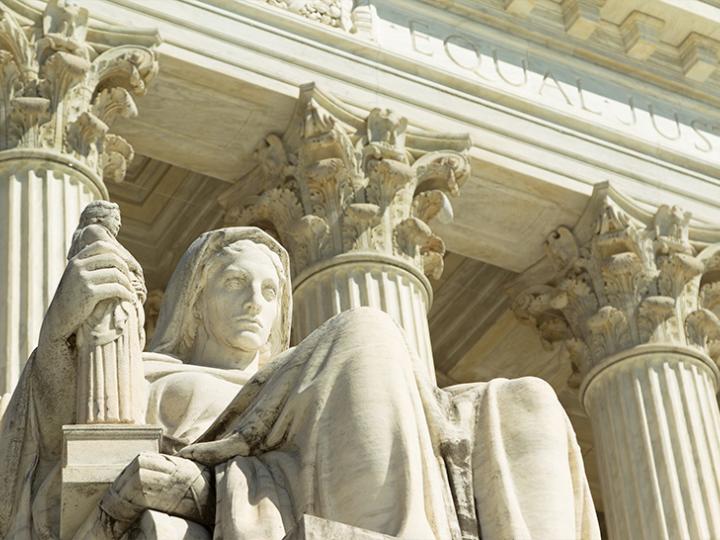Recently, in United States v. Hansen, No. 22-179 (June 23, 2023), the U.S. Supreme Court cited the Model Penal Code in holding that 8 U.S.C. § 1324(a)(1)(A)(iv) is not unconstitutionally overbroad, because it forbids only the intentional solicitation or facilitation of certain unlawful acts.
The case stemmed from an “adult adoption” scheme in which the defendant promised noncitizens a quick and easy pathway to gain U.S. citizenship. The defendant was convicted of, among other things, “encourag[ing] or induc[ing] an alien to come to, enter, or reside in the United States, knowing or in reckless disregard of the fact that such [activity] is or will be in violation of law” under 8 U.S.C. § 1324(a)(1)(A)(iv) (“clause (iv)”). The U.S. District Court for the Eastern District of California rejected the defendant’s motion to dismiss the clause (iv) charge on the ground that the clause was an overbroad restriction of protected speech in violation of the First Amendment. The U.S. Court of Appeals for the Ninth Circuit held that the clause was unconstitutionally overbroad, finding that it “would pull in ‘statements or conduct that [were] likely repeated countless times across the country every day.”’
The U.S. Supreme Court reversed the Ninth Circuit’s decision and remanded for further proceedings, rejecting the defendant’s overbreadth challenge. Associate Justice Amy Coney Barrett, writing for the Court, explained that “[t]he issue [was] whether Congress used ‘encourage’ and ‘induce’ as terms of art referring to criminal solicitation and facilitation . . . or instead as those terms [were] used in everyday conversation.” The Court pointed out that the words “encourage” and “induce” were two of the “most common” verbs used to define solicitation and facilitation; for example, they were used in the federal criminal code, state codes, and Model Penal Code § 5.02(1) and Comment 3 thereto, in describing solicitation and facilitation as encouraging or inducing another to engage in certain unlawful acts. The Court rejected the defendant’s argument that clause (iv) used the words in their ordinary sense and thus punished so much protected speech, reasoning that, because the terms were used to define the crimes of solicitation and facilitation, they incorporated common-law liability and a mens rea requirement. The Court concluded that “clause (iv) use[d] ‘encourages or induces’ in its specialized, criminal-law sense,” and, even if clause (iv) unlawfully reached some protected speech, “the ratio of unlawful-to-lawful applications [was] not lopsided enough to justify the ‘strong medicine’ of facial invalidation for overbreadth.”
Read the opinion here.
